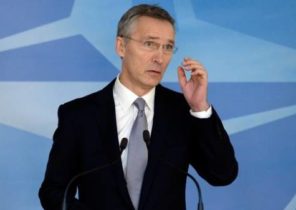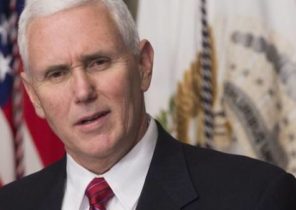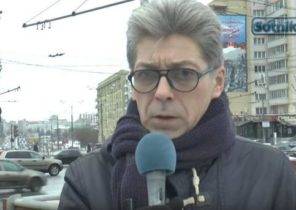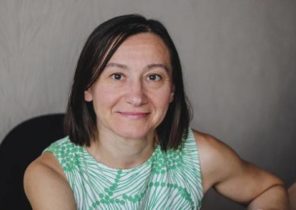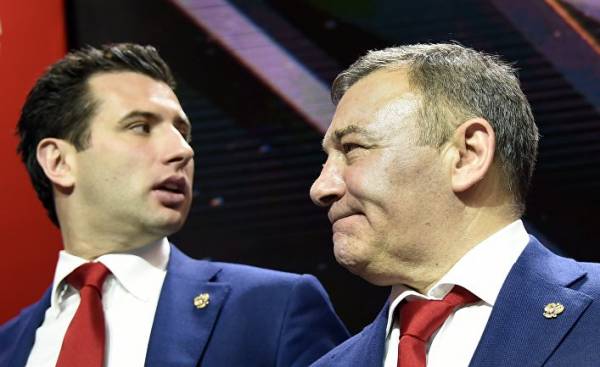
Under President Vladimir Putin, the corrupt regime of cronyism (from the English word crony is “a close friend”) has replaced the once flourishing Russian capitalism. If Putin has a motto, it is: “Friends — all enemies — the law”.
Published in 2000, “autobiographical” book “first person,” Putin explained what he really “values”: “I Have many friends and loved ones without exception. They have not gone away. I’ve never been betrayed. And I have them too”.
Indeed, Putin helped a lot of my friends. According to Forbes magazine, many of them became billionaires, and that’s even without taking into account of property which they, apparently, hidden in offshore accounts. As published last year, “the Panama document”, Putin’s childhood friend Sergei Roldugin, a cellist, who is not even trying to pretend to be a businessman, received about two billion dollars of public funds.
Putin actually nationalized the Russian elite. His close friends from St. Petersburg and the Soviet KGB trained sons in Russia, and not sent abroad. The offspring of the more famous of the Russian oligarchs of the previous generation is gradually leaving the country, and in their place come the children of Putin’s friends. As noted in 2015, the expert on Russia Brian Whitmore (Brian Whitmore), “children of the friends of Vladimir Putin” have become billionaires, “although most of them do not have 40 years.”
Unlike their fathers, these young tycoons in most cases do not undergo postgraduate training. After graduating from high school, they usually come at a high career position in the state banks or the companies, such as Gazprom, where after one or two quick promotions usually take the post of Vice-President. Meanwhile, their sisters look for a suitable party.
In the circles of the Golden youth of Putin’s sons of his St. Petersburg friends things are going particularly well. Usually they work in privatized companies. Take, for example, the case is not so widely known, Putin’s friend Nikolai Shamalov and his two sons. Shamalov worked in sales of medical equipment of Siemens AG in Russia until 2008, when the U.S. Department of justice and the us Commission on securities and exchange Commission (SEC) has fined Siemens 1.34 billion dollars for violations of the law on combating corruption abroad (FCPA). According to the SEC, Siemens “systematically practiced by the payment of bribes to foreign officials to obtain contracts” in six countries, including in Russia.
Shamalov was fired from Siemens after 16 years of loyal service. But he made a soft landing, and, moreover, his two sons have already done by the time fantastic career. In 2005, his eldest son George became CEO of Gazfond, a huge pension Fund of Gazprom. And the youngest son Cyril at the age of 25 he became Vice-President of SIBUR, a major petrochemical company, which had previously been separated from Gazprom.
During 2011-2013, Kirill received 4.3% of the stock of “SIBUR” in the framework of the programme for top managers. Then, in 2013, he reportedly married the daughter of Putin Katerina Tikhonova (the marriage ceremony took place in secret), then the rich friend of Putin’s, Gennady Timchenko, sold to Cyril 17% stake in SIBUR at a bargain price. As a result, when Putin’s son-in-law was 34 years old, his fortune was estimated at $ 1.3 billion.
Or take the case of Arkady Rotenberg, a Russian oligarch, who thrives at the expense of public contracts for the construction of pipelines and roads. The eldest son, Igor Rotenberg is a major shareholder of the company “Gazprom drilling”; and the second son a novel takes a post of Vice-President of “Gazprombank”. Meanwhile, the son of Yuri Kovalchuk (the spider in the centre of Putin’s financial web, Manager of the Bank “Russia”, which is now under foreign sanctions) became the Director of the state energy holding “inter RAO”.
Sons of Putin’s friends in the KGB too quickly make a career in the corporate world. The son of the former head of Putin’s administration Sergei Ivanov, whose name is exactly the same, first was the Vice-President of “Gazprombank” in the age of 25, and then at the age of 36 years — President of ALROSA, the state diamond company of Russia.
The son of the Secretary of security Council of Russia Nikolai Patrushev Dmitry headed the state agricultural Bank at the age of 33 years. And the son of the President of Rosneft Igor Sechin Ivan in 25 years became the Deputy Director of the Department in Rosneft.
Against this background, the son of the Chairman of the FSB Alexander Bortnikov, Denis looked like a wise old man, when at the age of 37 became part of the management Board of VTB Bank. The son of the former Prime Minister of Russia and Director SVR Michael Fradkov Peter is more consistent with norms of generations of children of friends of Putin: only 29 years, he became Vice-Chairman of Vnesheconombank, who is now implicated in the growing scandal surrounding the administration of the trump.
The loyalty of Putin’s friends and their families seem limitless. In November 2015, his government introduced new road collection called “Plato” (faced with mass protests by independent truckers) only in order to create a monopoly of the system operator, which is half-owned by Igor Rotenberg.
Putin even spoke in defense of the “Plato” at his annual press conference in December 2015. When a journalist began to ask him about “young Rotenberg, who just gave the truckers of the country”, Putin dismissed her concerns as “things side character.” According to Putin, the revenues from this fee “are not in someone’s pocket, they go one hundred percent to the Road Fund of the Russian Federation, to the last penny.” And from there, he said, “all of these fees were paid for road construction in the regions of the Russian Federation”. However, despite the assurances of Putin, mass protests continued as the flow of money into the pocket of Igor Rotenberg.
Although nepotism is thriving in Russia, the concentration of such a tiny group of rich people on top positions is still amazing. Thanks intergenerational cronyism of Putin, the oligarchs and their families become even richer. But upon the disappearance of the career ladders to higher positions, the discontent of the new generation of young, capable and ambitious Russians will only grow.
